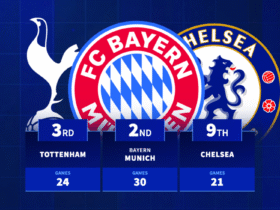Expert Insight

The 2025/26 season has kicked off across all top five leagues, with many clubs entering the new campaign full of optimism for a successful year. The English Premier League, Ligue 1, and La Liga are already into their second game, while Serie A and the Bundesliga just launched last weekend. Anticipation is high for another exciting season in Europe’s major leagues, following an active transfer window that still has a week to go.
This summer’s transfer spending is set to break all previous records, with clubs investing billions in new talent. However, it’s not just new signings vying for fan approval; numerous clubs have also changed their managerial staff over the offseason. In Serie A, 12 clubs have started the season with different coaches compared to last year, including prominent teams like Inter Milan, AC Milan, and Roma. Remarkably, this still falls short of the record for managerial changes, as Transfermarkt has examined the statistics from the top five leagues since the year 2000.

Most Managers Changed at the Start of a Top Five League Season
Italian clubs are infamous for their frequent managerial changes, a trend reflected in the statistics. The cycle of coaching hires and firings in Italy often results in managers moving between the same clubs throughout their careers. Last season saw a record high of 14 new managers in Serie A, and as illustrated in the graphic below, Serie A clubs lead the way with 11 entries, while clubs in the Bundesliga and Premier League are generally more hesitant to make changes.

What explains the high turnover of managers in Serie A? Aniello Luciano, an expert on Italian football from Transfermarkt, provides insight: “Culturally, Italian clubs have always prioritized immediate results, leading to a short-term focus,” he notes. “This approach often clashes with long-term planning, making it challenging for coaches—regardless of whether they are genuinely the source of any issues. Overall, there is limited patience in Italy when it comes to managerial changes. Newly promoted teams often shift management irrespective of the technical staff. Specific circumstances this summer played a role, as Gian Piero Gasperini and Simone Inzaghi left after reaching the end of their cycles. Meanwhile, Milan, Fiorentina, and Roma made changes due to high aspirations and disappointment with last season’s performances.”














Leave a Reply
View Comments